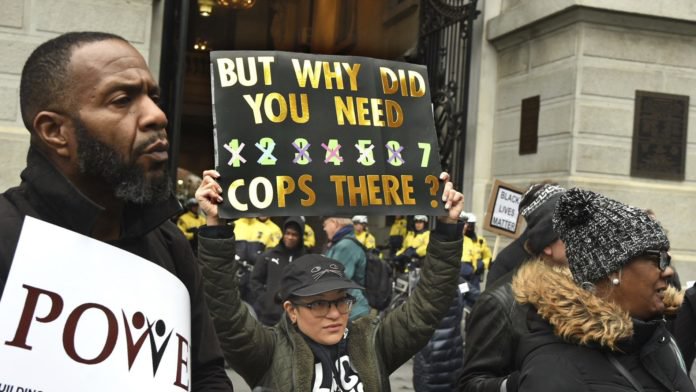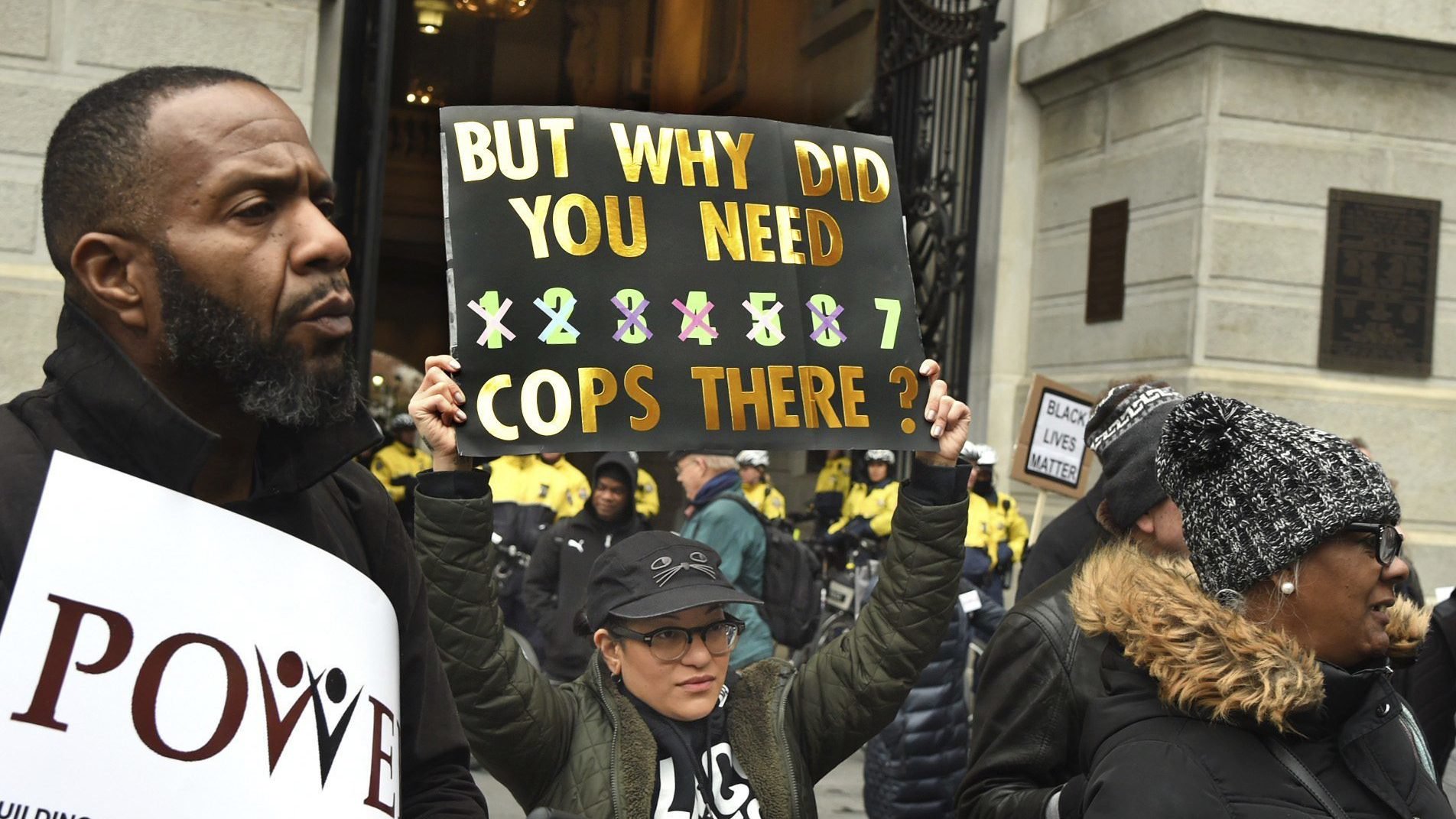[ad_1]

By ERRIN HAINES WHACK, AP National Writer
PHILADELPHIA (AP) — Two recent encounters at a Philadelphia Starbucks and a Pennsylvania golf club that led to allegations of racism against black patrons escalated into full-blown confrontations when people decided to call 911 to report incidents that clearly weren’t emergencies.
The incidents show how common it has become for people to call 911 these days to settle fairly routine disputes, serving as the catalyst in some cases for racially charged encounters involving African-Americans and minorities.
In Philadelphia, a Starbucks manager punched 9-1-1 into her phone to report two black men who were waiting for a real estate meeting, prompting police to show up and arrest them. In York, Pennsylvania, white golfers called 911 amid a dispute over slow play by five black women.
Previous non-emergency calls have had lethal consequences for African-Americans.
Tamir Rice, a 12-year-old black boy who was playing with a pellet gun in a Cleveland park, was shot to death in 2014 by a white police officer after a man waiting for a bus called 911 to reporting a “guy” was pointing a gun. The man also told the dispatcher that the gun might be “fake,” but that information was not relayed to the responding officers.
John Crawford III of Ohio was shopping in a Walmart in 2014 when he picked up an air rifle from a Walmart shelf. A man called 911 on him, and Crawford was killed by a police officer.
In all these cases, it was the 911 call that escalated the encounters and led to criticism that Americans have become too quick to call 911 for non-emergencies. They also served as a reminder of how vastly different the decision to call 911 is for black and white Americans.
“Calling the police, for any black person, is fraught,” said Georgetown University professor Paul Butler, author of the recent book, “Chokehold: Policing Black Men.” “It’s always a deliberate decision with a risk of a downside that could be tragic.”
The National Emergency Number Association says about 240 million calls are made to 911 in the U.S. each year, mostly from cell phones. The widespread nature of mobile phones has made it much easier for people call 911, compared to the past era when they had to be near a landline.
Tyler Wall, a sociology professor at the University of Tennessee, Knoxville and co-author of “The Police: A Field Guide,” says the increased reliance on 911 has put police in a difficult situation where they are being used to enforce racial discrimination over vague fears of a threat.
“Police then become the all-go-to resource to handle anything (businesses) don’t like,” he said. “Police are constantly on speed dial.”
For many people, the decision to call the police is often motivated by a feeling of being threatened, Butler explained. But when the actions of a black person are perceived as more criminal, they can be seen as a threat even if their behavior is the same as a white person’s. The combination of fear and bias can have dangerous effects for blacks — both as the subject and caller.
When black people consider calling the police, there is the additional consideration of whether calling for help could also bring harm. A study published in the American Sociological Review in 2016 showed that high-profile cases of police violence could lead to black residents being less likely to report crimes.
“They know that the police are going to come in, see a black person and immediately assume the worst,” Butler said. “The concern is that these reactions by police officers make black people reluctant to call the police, even in situations where it might be useful for the police to be involved.”
Studies have shown that African-Americans are indeed less likely to call police to report a crime than whites. Still, a large majority of white and black Americans who call the police felt officers acted properly and were helpful.
A 2013 Justice Department report found that for non-crime emergencies, 83 percent of blacks compared to 94 percent of whites felt police were helpful. Additionally, 88 percent of blacks compared to 96 percent of whites felt police acted properly on such occasions.
LiRon Anderson-Bell said the golfing incident was a reminder that a simple call to the police is anything but for black people.
“We as a society have started to use the police as a weapon beyond a weapon,” said the 48-year-old Philadelphia mother, who is black. “Everybody knows what that means, everybody knows what that can lead to.”
Anderson-Bell said she has called the police twice in her life: Once, in her 20s, when she and a roommate believed they overheard a nearby assault on a woman. The second time was two years ago when she thought she saw a group of black teens robbing a white photographer.
“I saw the crime committed, and I hesitated,” she said. “I was afraid for what would happen to them. They were teenage boys, they were all black … I was conflicted.”
Even before she was aware of the racial implications of calling 911, Amanda Pinney learned not to abuse the phone number at a young age, after dialing it as a child when someone set fire to something in her yard.
“Even then, they asked me if it was an emergency,” Pinney, 34, recalled. “That, to me, instilled that calling the police was a really big deal.”
She said her car was burglarized as a teenager, and officers caught the thief and recovered her belongings. When they asked if she wanted to press charges, Pinney declined.
“He was black and looked not very much older than me,” said Pinney, a white woman. “I wasn’t taught to be really careful because this could have consequences for people of color, but you’re still aware that you’re setting something in motion.”
___
Whack is The Associated Press’ national writer for race and ethnicity. Follow her work on Twitter at http://www.twitter.com/emarvelous
[ad_2]
Source link

